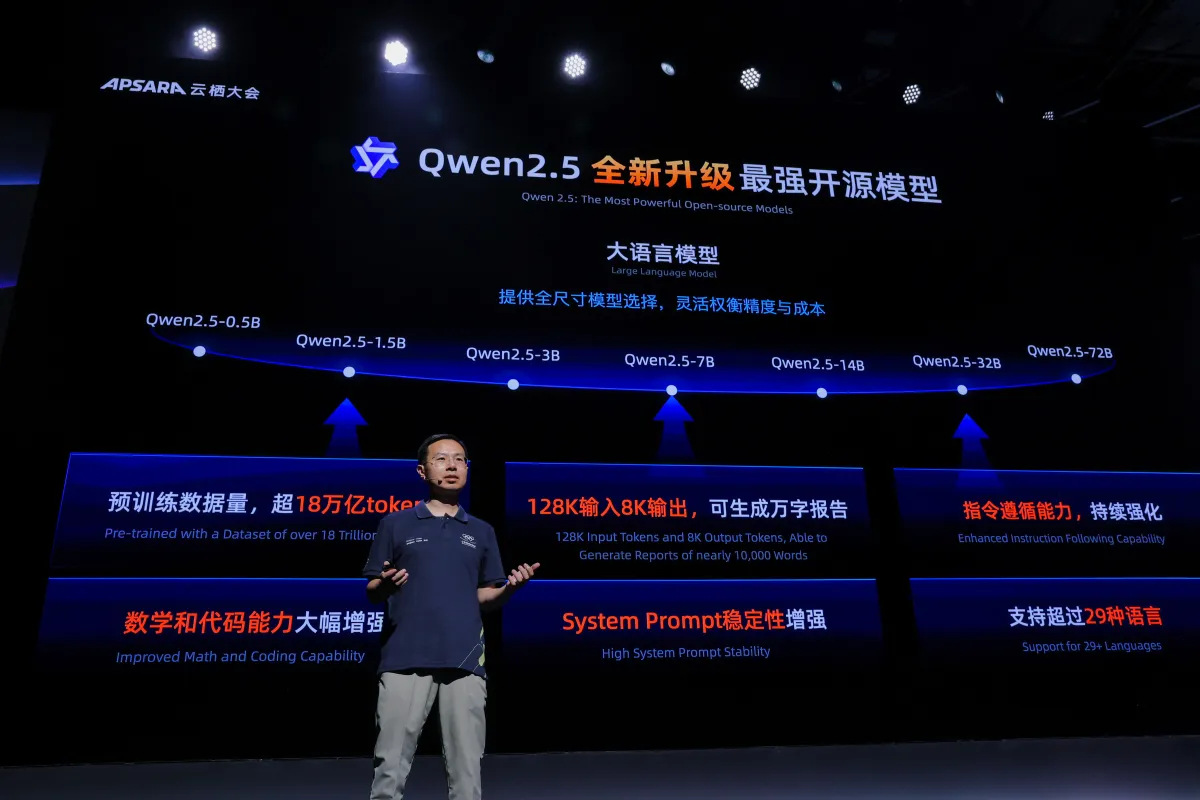Alibaba Launches Over 100 New Open-Source AI Models, Unveils Text-to-Video Tool
The Chinese e-commerce giant is also introducing a text-to-video generation tool that enables users to create videos based on text prompts.

Alibaba announced the release of more than 100 open-source artificial intelligence models on Thursday, enhancing its technological offerings in a bid to strengthen its competitive position against domestic rivals like Baidu and Huawei, as well as U.S. giants such as Microsoft and OpenAI.
The newly launched models, branded as Qwen 2.5, are versatile and applicable across various sectors, including automotive, gaming, and scientific research. Alibaba claims these models have improved capabilities in mathematics and coding, allowing for more sophisticated AI applications.
By making its models open-source, Alibaba allows researchers, academics, and companies worldwide to utilize its technology for developing their own generative AI applications without the need for extensive training resources. Since launching its Tongyi Qianwen, or Qwen, model last year, Alibaba has reported that its open-source models have been downloaded 40 million times.
In addition to the open-source models, Alibaba has upgraded its proprietary flagship model, Qwen-Max, which is not available to the public. The company markets its capabilities through cloud computing services, claiming that Qwen Max 2.5-Max outperforms competitors like Meta’s Llama and OpenAI’s GPT-4 in areas such as reasoning and language comprehension.

Eddie Wu, CEO of Alibaba, stated the company's commitment to investing in AI research and development to enhance its global infrastructure. As Alibaba seeks to invigorate growth amid stiff competition and a sluggish domestic market, it hopes that these new AI offerings will attract both domestic and international customers to its cloud services, which have shown signs of recovery in recent months.




